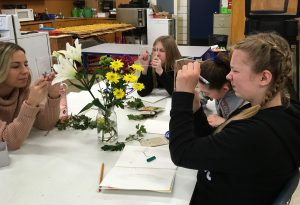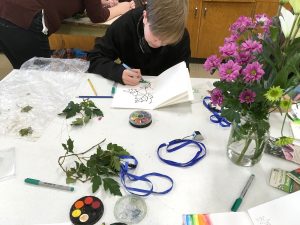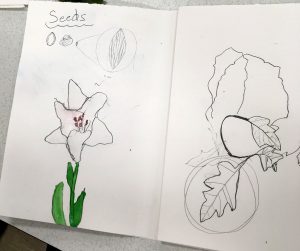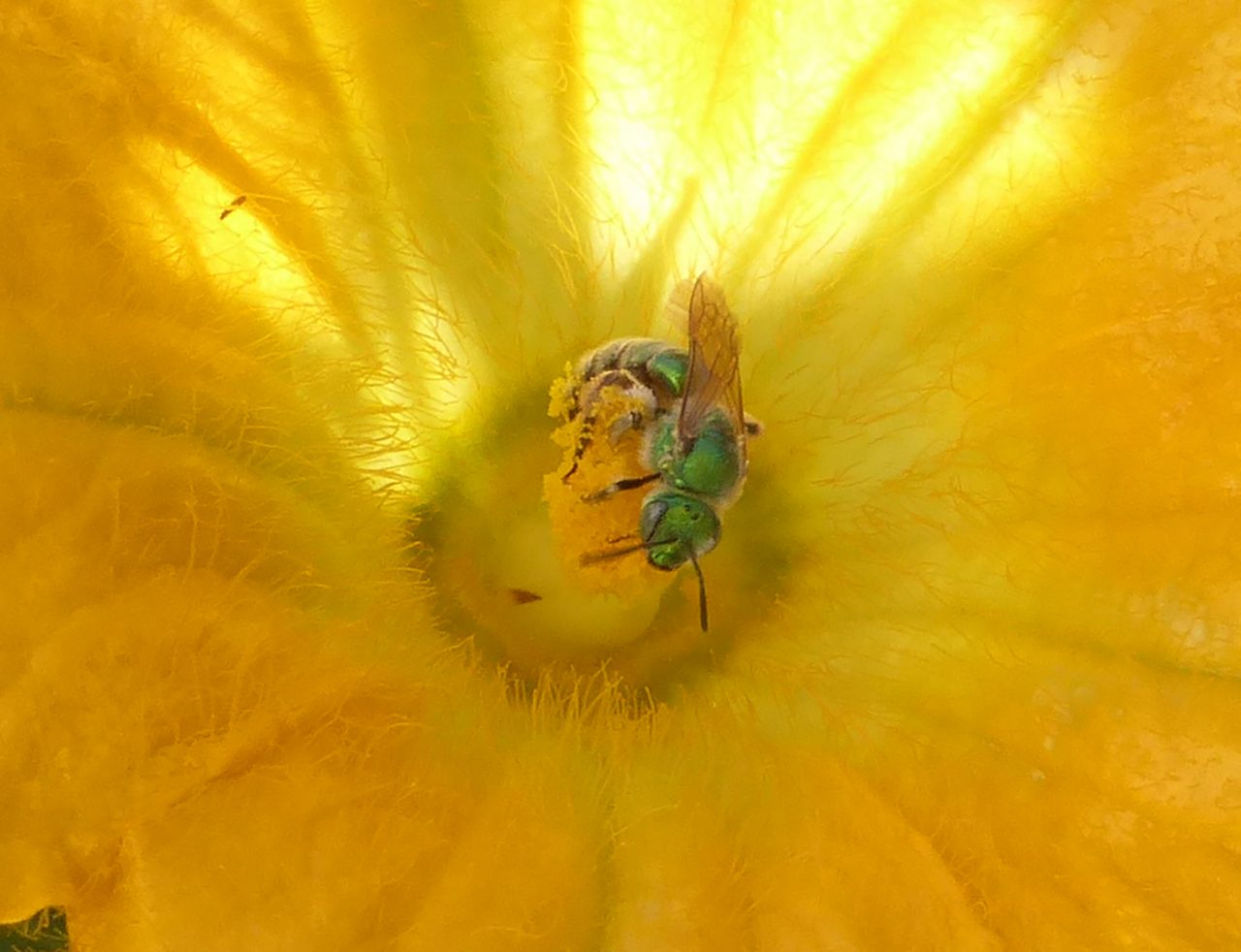Lyn Baldwin, Chante Reddeman, Elaine Sedgman
Say the word “bee” and most of us, regardless of age, picture a honey bee. Although fascinating animals (and important for agriculture), honey bees are not native to North America. In contrast, say “native bee” and few can picture, let alone name any of the 450 native bee species found in our province. Yet our native bees—whether bumble bee, mason bee, miner bee or leaf-cutter bees—provide critical ecosystem services throughout the Thompson-Nicola region.
Like honeybees, many of these native bees are threatened by current land use practices, including urbanization. Education is always a key step in conservation; thus, the purpose of this project is to address this knowledge gap by cultivating bee literacy with students currently enrolled in Chante Reddeman’s Food Sustainability class at Brock Middle School.



The presence of a food garden at Brock Middle School will allow bee literacy to be cultivated by addressing the following questions:
- What makes good garden habitat for native bees? The answers to this question will be introduced by guest lecture by a master gardener, Elaine Sedgman, skilled in cultivating “bee-friendly” gardens. Students will follow up on this lecture with their own research using garden guides and bee guides. Students will also be provided with a copy of the Thompson-Shuswap Master Gardener guide to our local native bees.
- How can field journals help us learn about the interaction of garden plants and their pollinator visitors? Students will be introduced to field journaling techniques through a workshop with Dr. Lyn Baldwin and will be able to incorporate field journals into their work with planning and planting their food garden.
- How can we observe pollinators—including our native bees—can in nearby native habitats? Through a field trip to nearby natural areas, students will use their knowledge of bee biology and field journaling skills bees to practice observing native bees interacting with the native flora.
